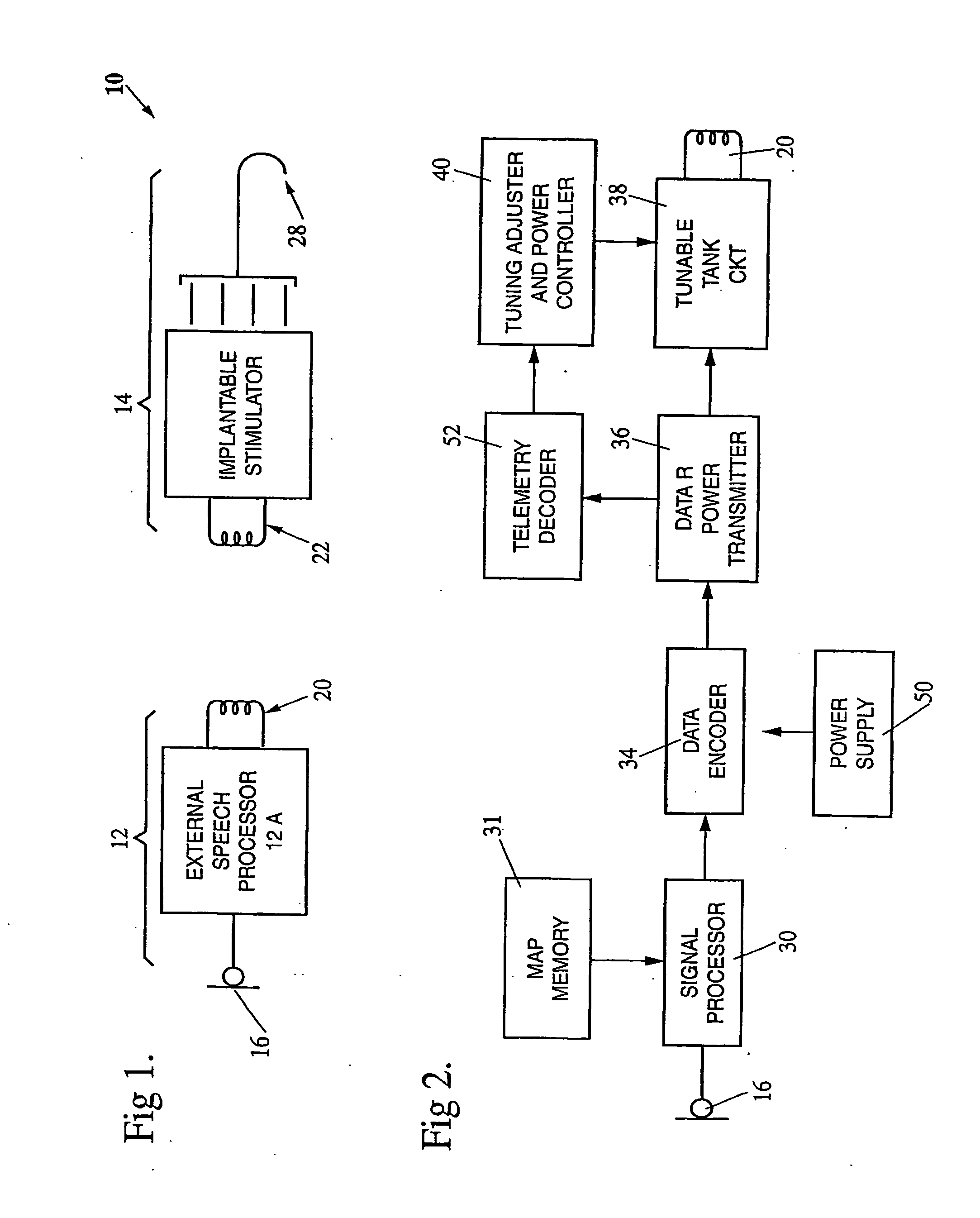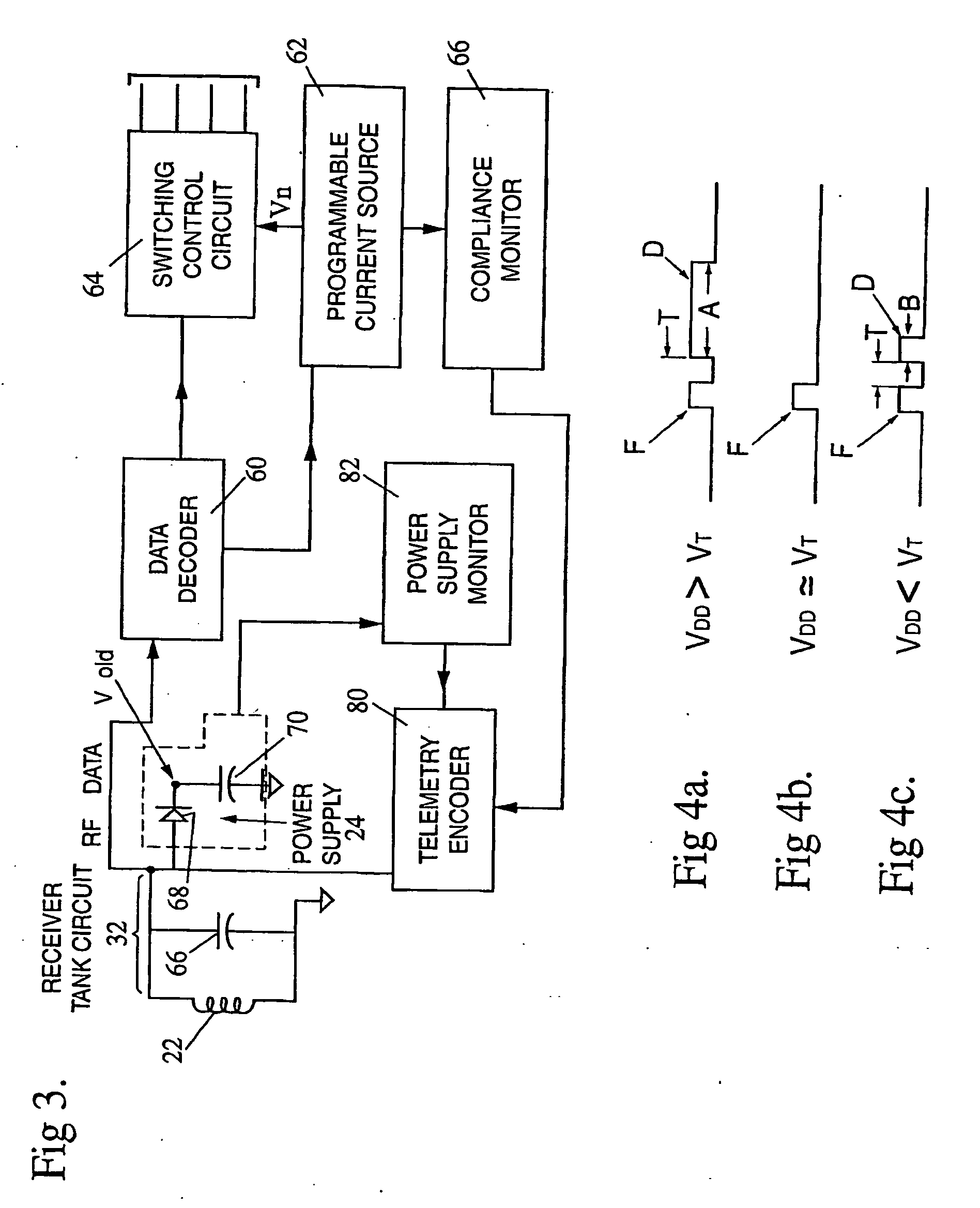Transcutaneous power optimization circuit for a medical implant
a technology of optimizing circuit and cochlea, which is applied in the field of optimizing circuit in cochlear implant system, can solve the problems of short battery life, short battery life, and inability to satisfactorily assist patients with inner ear hearing impairment, and achieve the effect of increasing the life of external component batteries
- Summary
- Abstract
- Description
- Claims
- Application Information
AI Technical Summary
Benefits of technology
Problems solved by technology
Method used
Image
Examples
Embodiment Construction
[0028] Referring first to FIG. 1, a cochlear implant system 10 constructed in accordance with this invention includes an external component 12 and an internal component 14. The external component includes a speech processor 12A and is associated with a microphone 16 for sensing ambient sounds and generating corresponding electrical signals. These signals are sent to the speech processor 12A which processes the signals and generates corresponding encoded signals. The encoded signals are provided to a transmitter (including a transmit coil 20) for transmission to the internal component 14.
[0029] The internal component 14 (which may also be referred to as an implantable stimulator) receives the power and data via a receive coil 22. The RF power signal is stored by a power supply 24 (See FIG. 3) which provides power for the internal component 14. The data signals control the operation of the internal component 14 so as to generate the required stimulation pulses which are applied to th...
PUM
 Login to View More
Login to View More Abstract
Description
Claims
Application Information
 Login to View More
Login to View More - R&D
- Intellectual Property
- Life Sciences
- Materials
- Tech Scout
- Unparalleled Data Quality
- Higher Quality Content
- 60% Fewer Hallucinations
Browse by: Latest US Patents, China's latest patents, Technical Efficacy Thesaurus, Application Domain, Technology Topic, Popular Technical Reports.
© 2025 PatSnap. All rights reserved.Legal|Privacy policy|Modern Slavery Act Transparency Statement|Sitemap|About US| Contact US: help@patsnap.com



